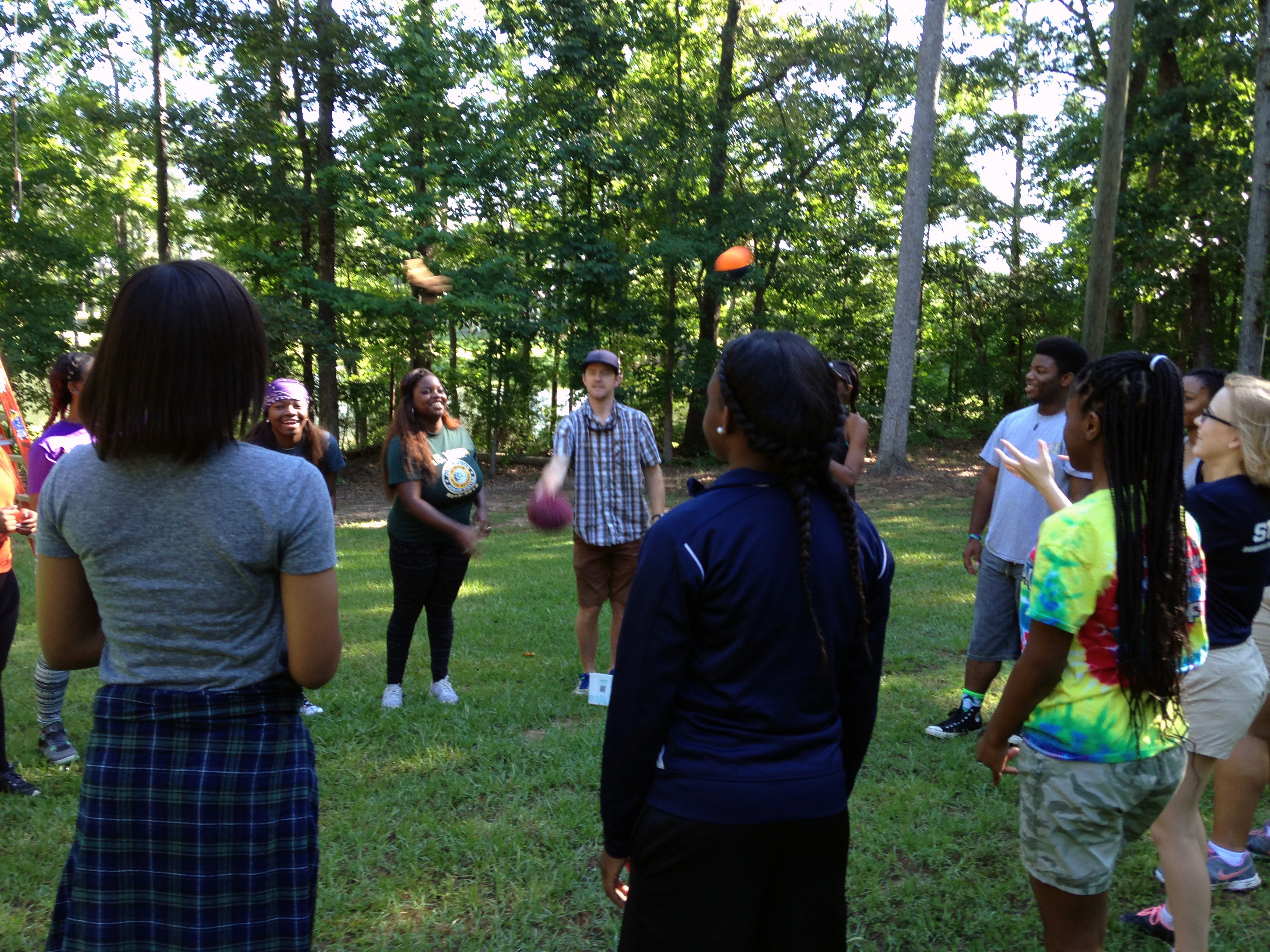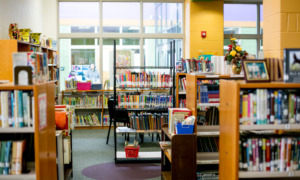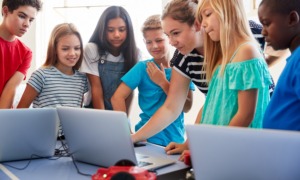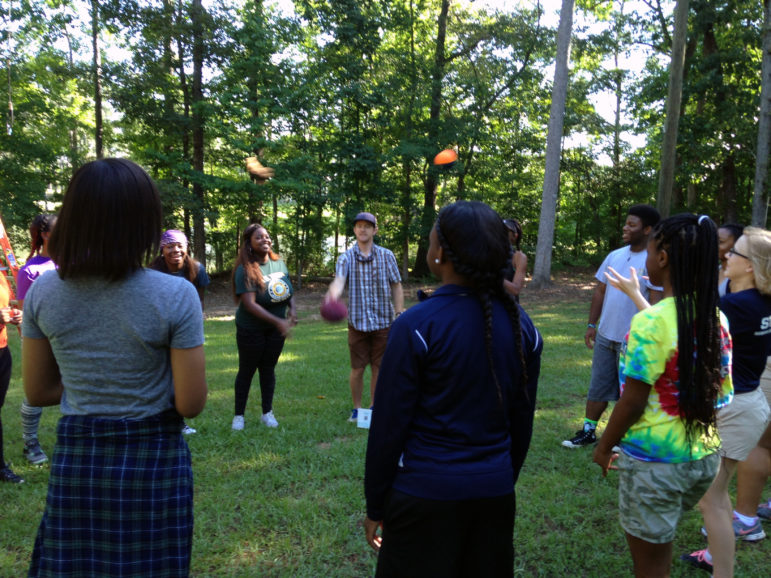
Last week Marquez Drinkard, 16, put the finishing touches on a “mummy dog” — a hot dog decorated for Halloween — as part of a culinary project in his after-school program.
Not only does Marquez attend the after-school program at Baldwin County High School in Bay Minette, Alabama, he also volunteers in after-school programs for younger kids.
He gained the near-peer education skills last summer at Auburn University’s 21st Century Community Learning Centers Summer Camp, where he learned to mentor and engage young kids in fun ways, and he got a taste of being on a college campus.
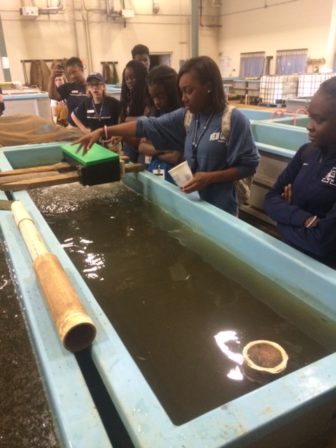 “I took a lot of pictures so that I can share them with the [younger] kids … and get them to go there,” he said.
“I took a lot of pictures so that I can share them with the [younger] kids … and get them to go there,” he said.
This annual weeklong program at Auburn University benefits three groups: the high school students who attend, the young kids they work with and the 21st Century programs they assist.
The Summer Camp is run by the Truman Pierce Institute, a research and outreach unit in the College of Education at Auburn University. It was started almost a decade ago.
Each summer, about 30 high school students are recruited to the camp, most of whom already work as assistants in 21st Century after-school programs in either volunteer or paid positions.
“They come for a week and live on the Auburn campus,” said Chris Groccia, academic programs administrator at the Truman Pierce Institute.
“They learn how to work with young people, how to tutor and how to do outside hands-on experiences,” she said.
The camp is free, but the students must commit to working a minimum of 50 hours in a 21st Century after-school program.
“We encourage our 21st Century after-school programs to do a lot of hands-on STEM outdoor activities,” Groccia said. It’s learning that is active, outdoors and fun, she said. The high school students take part in such activities at the summer camp.
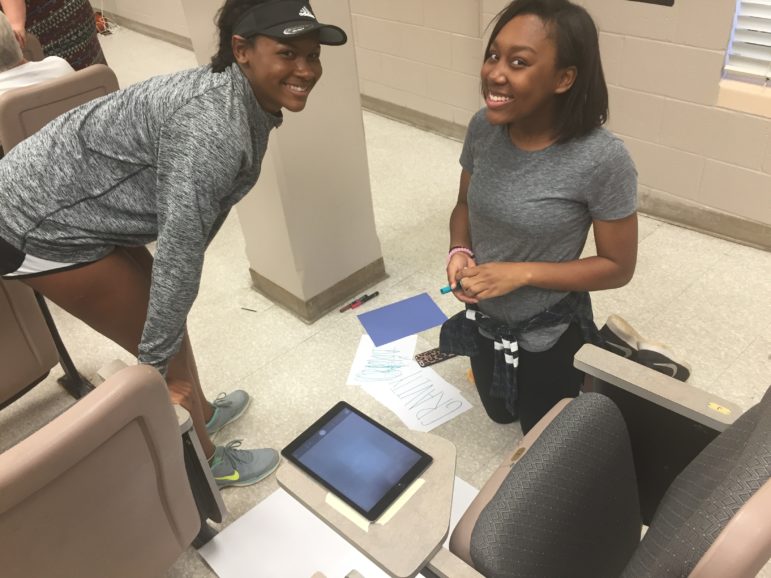
They seine for fish, which they measure and classify. They walk through an arboretum, and gather and classify leaves. They learn about reptiles by handling various types of snakes.
A night-time bug hunt is also part of the curriculum.
“They don’t want to do [the bug hunt] at first, but then they really like it,” Groccia said.
The summer camp is the first time some of the high school students have been away from their families, she said.
“Some don’t even consider going to college” until they attend the camp, she said. They actually rethink their future, she said.
When the high school students go back and teach skills to younger kids, it strengthens their own knowledge of the material, Groccia said. And young kids relate to high school students and look up to them, she said.
Their assistance in after-school programs also really helps the after-school teachers, she said.
Marquez said he learned various icebreaker activities to use with younger kids, and particularly liked a competition to build cars out of brightly colored Lego blocks.
Marquez said he had a great time at Auburn. It’s clear that he’s brought back a spirit of fun along with new activities he now helps to teach.


